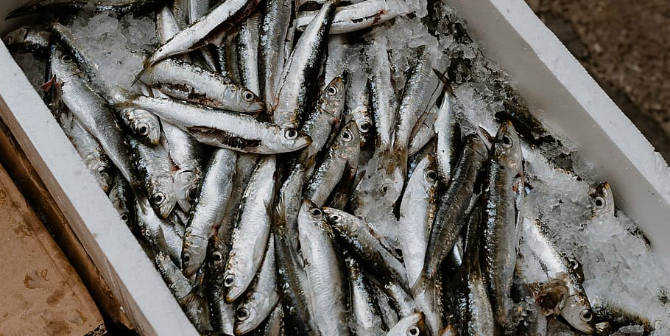The EU’s General Affairs Council has agreed on the negotiating mandate for the next phase of Brexit. Although the key points were already well-known and have barely changed, British negotiators will now have to work out the most problematic sections of the mandate, writes Iain Begg (LSE). Some sectors are bound to lose out.
For once in the Brexit saga, the UK had jumped-in early. In a speech by Boris Johnson delivered days after the UK left the EU, he insisted the centrepiece had to be a free trade deal similar to, but ‘at least as good as those in the EU’s recent trade agreements, such as those with Canada or Japan’. It also has to cover fisheries, security and ‘technical’ areas such as aviation, but explicitly rejects regulatory alignment.
Further details on the UK approach were published on February 27th, the main headline from which was the government announcing its readiness to end the talks in June if there was insufficient progress. If it did, the UK would be left to trade with the EU on so-called World Trade Organisation terms only, with no privileged access – what it refers to as an ‘Australia-type’ trading relationship.
This seemingly hard-line stance could presage a return to the politics of no deal from autumn 2019. What is also striking about the UK mandate are the frequent references to extant EU deals, notably with Canada and Japan, something the EU regards as untenable.
The respective ‘red lines’ are now on the table, but they only tell part of the story about where the biggest obstacles to a successful agreement lie. Inevitably, there has been much bluster about ‘walking away’, the realism of the timetable and so on, and further posturing and grandstanding can be expected. Do not be surprised if, before long, we start to hear variants on ‘no deal is better than a bad deal’.
But do not take it very seriously: both sides need a deal and have a common interest in making it rapid. It is encouraging to see the expression ‘best endeavours’ used by the EU, though not the UK, not least in relation to securing a deal within the transition period, although the UK promises to ‘work hard’.
Nevertheless, some of what is in the EU mandate must be expected to be untouchable, not least to avoid frictions inside the EU27. For example, a key point is in paragraph 10 which states that the UK, as ‘a non-member of the Union, that is not subject to the same obligations as a member, cannot have the same rights and enjoy the same benefits as a member’. Though unsurprising, this is a clear rejection of ‘having your cake and eating it’.
In what could be seen as a warning about suggestions from sources in London about reneging on the ‘divorce’ settlement or the arrangements for Northern Ireland, the EU mandate is clear on expecting the UK to deliver on the ‘effective implementation of the Withdrawal Agreement and of its three protocols’.
The EU also wants the various tracks of the negotiation to be conducted in parallel. While this could expedite matters, it could also mean no track will be fully concluded until there is comprehensive agreement.
In relation to service sectors, the EU wants to go beyond standard WTO provisions, not least in avoiding ‘unnecessary regulatory requirements’ and ‘cooperation on financial services should establish close and appropriately structured voluntary cooperation on regulatory and supervisory matters’.
This does not, however, mean the City of London can breathe easily, because the EU wants to be in the lead, with an expectation that ‘equivalence mechanisms and decisions remain defined and implemented on a unilateral basis by the European Union’. Moreover, the UK mandate is relatively slender on financial services, with just three short paragraphs, compared with more than a page on fisheries.
In some domains that might have been susceptible to friction, the EU mandate seems to be benign. Mutual opportunities in public procurement should be agreed and the EU notes the WTO’s Government Procurement Agreement as a starting point. Aviation will be based on the Union’s typical bilateral agreements – the basis is open and fair competition, but here again ‘the United Kingdom, as a non-member of the Union, cannot have the same rights and enjoy the same benefits as a member’.
There is a call for an open market for freight, but lorry drivers and haulage firms beware: Clause 73 of the mandate would curtail the ability to pick up loads other than for delivery to the UK:
“As third country operators, United Kingdom road haulage operators should not be granted the same level of rights and benefits as those enjoyed by Union road haulage operators in respect of road freight transport operations from one Union Member State to another (“grand cabotage”) and road freight transport operations within the territory of one Union Member State (“cabotage”)”.
Fishing rights have already become one of the most contentious issues, out of all proportion to the economic significance of the industry, though reflecting ramped-up political promises on both sides of the North Sea. Although the EU mandate refers to responsible fisheries, with science-based management of stocks, one of its most provocative demands is in clause 88 which states:
“the objective of the provisions on fisheries should be to uphold Union fishing activities. In particular, it should aim to avoid economic dislocation for Union fishermen that have been engaged in fishing activities in the United Kingdom waters”
Simply rephrased, it would mean no change in access to British waters for French, Spanish and other EU trawlers, an outcome guaranteed a hostile reception, certainly in Cornwall, Scotland and Yorkshire. Moreover, the mandate calls for an agreement by July, to allow the new regime to be in place for the first year after transition ends.
Several EU demands touch on regulatory equivalence and a continuing role for the European Court of Justice, outcomes that Boris Johnson was adamant he would not countenance and that are centre-stage in the UK’s February 27th mandate. As he put it in his February 3rd speech, a balanced agreement must exclude “any regulatory alignment, any jurisdiction for the CJEU over the UK’s laws, or any supranational control in any area, including the UK’s borders and immigration policy”.

The irony here is that the UK probably does not want to diverge much, if at all, from EU norms – just to assert its right to do so if or when it chooses. Consider the following:
- The EU wants the UK to respect rules on state aids (in practice, subsidies to companies), yet over many years the UK has been among the Member States least inclined to use such aids. The Commission’s 2017 scoreboard reveals that, as a proportion of GDP, the UK spent half what France does on such aids and a third of what Germany does.
- The EU wants to see no reduction in UK social and labour protections, what might be called ‘Singapore on Thames’. But there is no obvious appetite for this and, if anything, the result of the 2019 UK general election will lead to an increase in social spending (widely defined), and it is noteworthy that the UK has been steadily increasing the minimum wage to a level at the high end of the EU range.
- Much the same is true for policies on the environment or countering climate change where the UK has the same values as the EU mainstream, including respect for the precautionary principle which the mandate emphasises.
In short, there may well be plenty of noise about divergence, autonomy and taking back control, but it is questionable whether it reflects profound underlying differences. The EU also wants to achieve cooperation to tackle irregular migration and on a range of security matters, on much of which the UK has very similar priorities. The corollary is that, although the detail will often be tricky, the basis for an agreement should not be hard to find.
Where the EU document is rather vague is on governance arrangements, although a reference in paragraph 160 to the Court of Justice as the ‘sole arbiter’ will not go down well in Whitehall. For the UK, the mandate suggests basing governance on existing EU deals with Canada or Japan. The EU mandate includes calls for:
- Dialogue at appropriate levels to provide strategic direction;
- A governing body responsible for managing and supervising the implementation and operation of the envisaged partnership, comprising representatives from both;
- Appropriate arrangements for dispute settlement and enforcement, including provisions for expedient problem-solving.
There are lines in the EU mandate capable of antagonising the British side, be it on data protection and privacy, return of cultural objects (think Elgin – or, in Greek terminology, Parthenon – marbles), or excluding Gibraltar from the deal. Much – maybe too much – is being made of the incompatibilities in expectations and the apparently irreconcilable red lines.
Hard Brexiteers will wonder about a section of the EU mandate covering how principles for UK participation in EU programmes will be established. It specifically mentions ‘science and innovation, youth, culture and education, development and international cooperation, defence capabilities, civil protection, space and other relevant areas when in the Union’s interest’.
The last phrase suggests the UK would be very much the junior partner if the UK does, indeed, seek to stay involved in EU initiatives and poses tricky questions. It necessarily means financial contributions, but could mean a diminished UK voice in, for instance, shaping the content of research programmes.
But a negotiation is, well, just that: a process of bargaining in which concessions have to made to secure an agreement. Such concessions, in turn, mean that some interests will be denied their aims or preferences and the harder politics will be about who to throw under the bus. Will it be the fishing industry on one side or the other; will it be UK financial services?
Henry Kissinger, no stranger to tough talks, had this advice which both sides ought to heed: “it is frankly a mistake of amateurs to believe you can gain the upper hand in a diplomatic negotiation”.
This post represents the views of the author and not those of the Brexit blog, nor LSE. Photo license: CC0 public domain.







We are now in the realm of technical discussions which seem to all but those accursed “experts” a complex unfathomable mass of regulations and rules.
I bow to Iain Begg’s superior knowledge, and I feel that he has successfully summarised a very technical process. As he points out the EU and UK have both now set out their absolute positions, and they will both have to compromise to reach an agreement. Defaulting to WTO rules in July by the UK government would seem madness to me, but that does not mean Johnson and Cummings will not try it on.
A good summary of the EU’s position is available at:
http://ec.europa.eu/commission/presscorner/detail/en/qanda_20_326 .
What the UK government will do is anybody’s guess, but the legal positions can sometimes be mapped out in advance. Take fishing, for instance. Unless the EU intends to go to war against the UK, or persuade the UK government to sell part of what properly and legally belongs to UK citizens, permanent residents and other legal persons based in the UK, it appears to me that fishing is nothing to negotiate about. At the most, the EU negotiators may make an offer to lease the UK fishing grounds on a quotum basis for X number of years.
In reality there must be a limit on how quickly the UK fishing industry could ramp up if we chose to keep all fishing to ourselves. It seems to me there is ample room for compromise.
For example, the EU fishing quota could be immediately reduced by x% (5%?, 10%?) with a small further annual reduction over 10 years followed by a new agreement in 10 years time. Similar deals could be considered on other issues.
The forthcoming trade deals and negotiations are fraught with many red lines on both sides.Looking from a neutral point of view one can see the argument for both the the UK and the EU. There is one major difference however and I quote from above…some of what is in the EU mandate must be expected to be untouchable, not least to avoid frictions inside the EU27. For example, a key point is in paragraph 10 which states that the UK, as ‘a non-member of the Union, that is not subject to the same obligations as a member, cannot have the same rights and enjoy the same benefits as a member’.
Yet it is clear that the EU want the same terms or better in areas such as fishing. Upon us not enjoying the same benefits before as a now non member which is reasonable than the EU will also be treated in the same way. This is something that the EU cannot or will not understand.